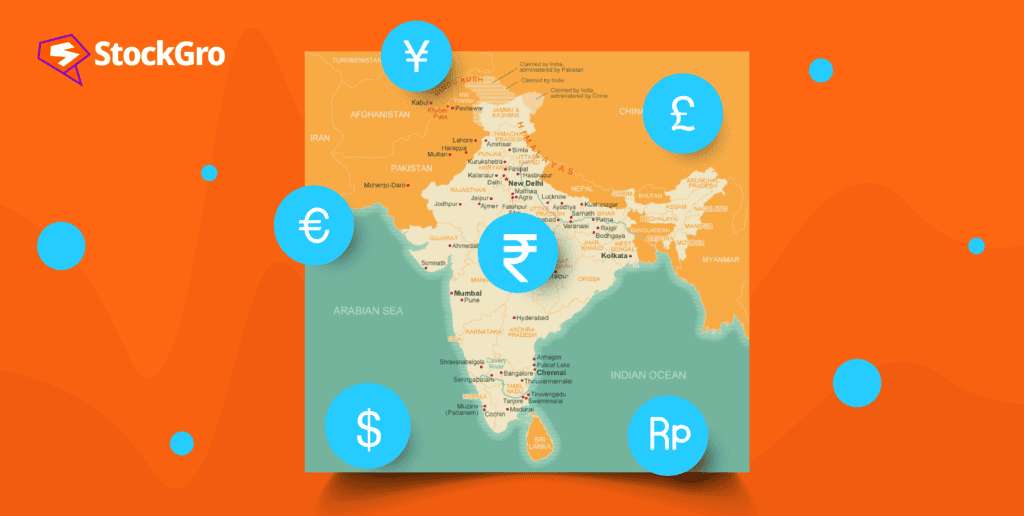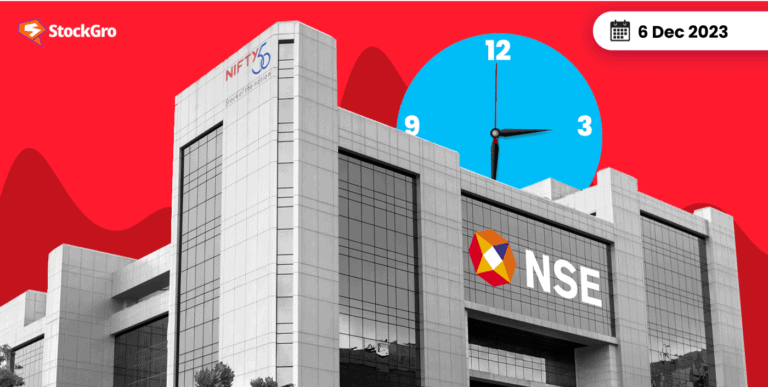
The foreign exchange market operates as a decentralised global marketplace where exchange rates for currencies worldwide are traded. This over-the-counter (OTC) market facilitates various activities, including currency buying, selling, exchanging, and speculating on the relative values of different currency pairs.
India’s foreign exchange market turnover
The Forex market is a diverse range of entities such as banks, forex dealers, commercial enterprises, central banks, investment management firms, hedge funds, retail forex dealers, and individual investors. These stakeholders collectively contribute to the dynamic and multifaceted nature of the foreign exchange market.
Also read: All you need to know about the basics of forex trading in India
Importance of the foreign exchange market
At its core, the foreign exchange market, often abbreviated as forex or FX, serves as a platform for the buying and selling of foreign currencies. It enables currency conversion for international trade, investments, and settlements. A fundamental principle of this market is that currencies are traded in pairs like the below:
- USD/INR
- EUR/INR
- GBP/INR
- JPY/INR
When you engage in a long USD/INR position, it means you are buying the numerator (USD) while selling the denominator (INR). In other words, you are using INR to acquire USD. Conversely, when you sell the pair you are selling USD and acquiring INR again.
Participants in the foreign exchange market
The participants in the market are brought together by the following participants:
- Commercial banks: These institutions play a significant role in facilitating currency exchange services for businesses, individuals, and other financial entities.
- Corporations: Companies engaged in international trade and commerce rely on forex transactions to facilitate the import and export of goods and services.
- Government: Government institutions participate in forex markets to manage foreign reserves. It also assists in stabilising their country’s economy.
- Centralised banks: Central banks engage in forex activities to exert control over monetary policies, interest rates, and the regulation of currency supply.
- Individual traders: Individual traders and speculators participate in the market with the aim of making money from changes in currency prices.
- Hedgers: Entities such as exporters and importers utilise forex markets as a means of hedging against adverse currency movements that could impact their financial positions.
- Brokerage firms: Acting as intermediaries, brokerage firms facilitate transactions on behalf of clients and provide them with access to the forex market.
- International organisations: Certain international entities may partake in forex markets to implement policies and provide financial assistance as required.
Use our currency converter: https://www.stockgro.club/currency-converter/
Types of foreign exchange market
The foreign exchange market consists of the following main types:
- Spot markets: The spot market is known for its immediate transactions, ensuring swift delivery of various currency pairs. This minimises exposure to market uncertainties that can affect prices.
- Futures market: In this market, two parties enter into a legal agreement to buy and sell currency pairs at a predetermined price and future date. These transactions are formal and offer protection through predefined conditions.
- Forwards market: Similar to the futures market, the forward market involves negotiation between parties regarding contract terms. Forward contracts are more flexible as they are traded on the over-the-counter market.
- Options market: The advantage of currency options is that they grant investors the right (but not the obligation) to sell currency contracts at a future date. Premiums are paid by buyers to sellers for the option to cancel the contract at any time.
Also read: Forward markets – meaning, types and features
Features of the foreign exchange market
The role of the foreign exchange market is to enhance efficiency and transparency for currency buyers and sellers. These functions include:
- Transfer function: The main role of the foreign exchange market is to enable the exchange of foreign currencies or financial resources across international borders. It achieves seamless payment processing by converting the currency of one nation into that of another.
- Credit function: Forex also acts as a creditor to facilitate the flow of goods and services across borders. It provides short-term loans to importers for financing foreign purchases.
Advantages of foreign exchange markets in India
Here are several benefits of forex trading that make it a popular choice for both novice and experienced investors in India:
Flexibility
Newcomers and seasoned traders enjoy the freedom to trade at their convenience. Forex operates 24/7, eliminating concerns about time zones and allowing traders in India to engage in currency trading whenever they wish. Forex markets offer various tools for investment like futures and options in the spot and forward market, which is an added advantage.
Full transparency
Unlike some markets susceptible to malpractices like insider trading, the decentralised nature of the foreign exchange market spanning multiple continents and time zones ensures a high level of transparency. Foreign exchange happens through swift communication which is a very transparent system used by most international banks.
Wide range of trading options
The forex market offers an extensive range of trading options, encompassing currencies from virtually every country. Traders can choose between spot trading and future agreements based on their preferences and risk tolerance. This diversity caters to investors with varying capital levels.
Low transaction costs:
Transaction costs in the forex market are low. Commissions are either minimal or absent, particularly for retail traders. Revenue for forex dealers primarily comes from the “spread,” the difference between the quoted buying price and the bid, which is typically very low.
Market volatility
While high volatility is often viewed negatively in financial markets, it can be advantageous in the forex market. Currency fluctuations are influenced by factors such as political developments, economic stability, investor confidence, and government policies, most of which evolve gradually, allowing informed investors to make well-informed decisions.
Leverage
The forex market stands out by offering investors the opportunity to employ substantial leverage, which can significantly magnify their potential for profit. This comes with high risk hence it is important to use caution when using leverage.
Demo accounts
Many forex market dealers offer demo accounts, enabling traders to practise without risking any capital. These accounts replicate live trading conditions, providing invaluable experience and building trader confidence.
Also read: Foreign portfolio investments – Overview, types and benefits
Conclusion
The foreign exchange market in India presents a world of opportunities. Its global reach, flexibility, transparency, low transaction costs, and access to demo accounts make it an attractive choice for those interested in trading foreign currencies. As you gain familiarity with the market’s intricacies and select the right currency pairs, you can confidently participate in the dynamic world of forex trading in India.

